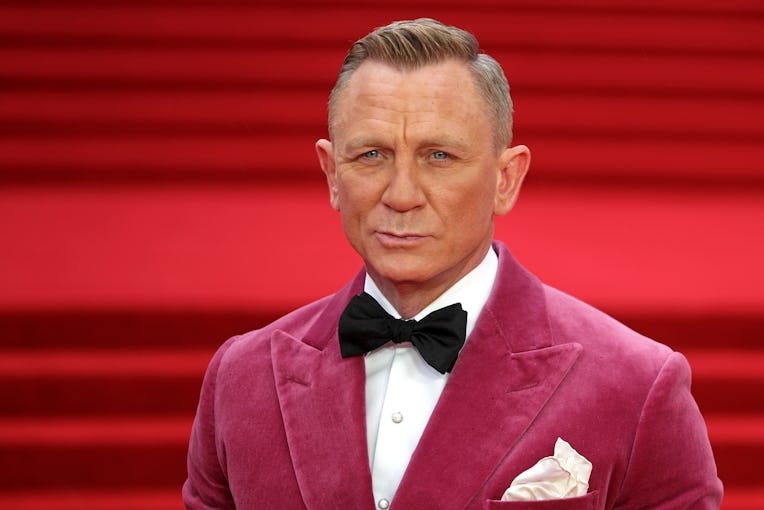Everyone And Their Father Is "Subverting" "Masculinity"
Somebody learned a new word

Something toxic is seeping into the entertainment industry, and this time it isn’t masculinity. Well, actually, it is, but not in the way you’d think. More and more, our handsome leading men are being uplifted by the media for “subverting masculinity.” It’s become enough of a talking point in profiles and essays that one must wonder: What does it even mean?
Well, it turns out it can mean several things. If you are Daniel Craig, it means wearing a pink velvet tuxedo jacket at the premiere of No Time to Die, the film in which you are starring as James Bond. “From his portrayal of a more vulnerable Bond to his cerise suit jacket on the red carpet, Daniel Craig has worked hard to defy expectations of masculinity,” wrote The Guardian in an article about Craig saying he likes to go to gay bars because he’s less likely to get into a fight.
A recent Variety profile of Riz Ahmed described him as representing “a new class of leading man — one who showcases vulnerability, subverts traditional masculinity and ushers in a different type of Hollywood hero.” There is little further explanation as to what subverting “traditional masculinity” might actually entail, other than the fact that Ahmed is a person of color who usually takes roles that don’t have him acting alongside a green screen and someone in a motion capture suit (except perhaps for Venom, where he plays the body host for the violent symbiote villain Riot, who I assume symbolizes traditional, bad masculinity).
None of this is necessarily new; publications have been enraptured by classically handsome men “redefining” masculinity for years now. In 2019, W Magazine called Jake Gyllenhaal’s role as the face of the Calvin Klein cologne Eternity “a meditation on masculinity.” He noted in his interview with the magazine that the fragrance “doesn’t necessarily have to be only for a man.” Someone call Judith Butler right now.
Two weeks later, Vogue wrote about how Timothée Chalamet was “ushering in a new era for masculinity” because, like Ahmed, he had chosen roles that required him to act (and also because he wore that harness to the Golden Globes).
But wait, there’s more. Chris Evans’s “version of masculinity is what we need right now.” Regé-Jean Page is “redefining Regency-era masculinity In Bridgerton.” A$AP Rocky is “a perfect example of someone who doesn't adhere to the traditional expectations of masculinity and femininity.” And of course, cultural hero and icon Ted Lasso gives “a master class in positive relationships, mental health and modern masculinity.”
I won’t bore you with all the other examples I subjected myself to in order to write this urgent and necessary post that is redefining blogging. But I am begging you, as a person with a brain, to not confuse “making a radical statement on masculinity” with “having a single cogent thought” or “not being in a Marvel movie” or “wearing a dress one time.” Just because these guys aren’t John Wayne or Mel Gibson does not make them the leaders of the revolution. That would be Lil Nas X, of course.